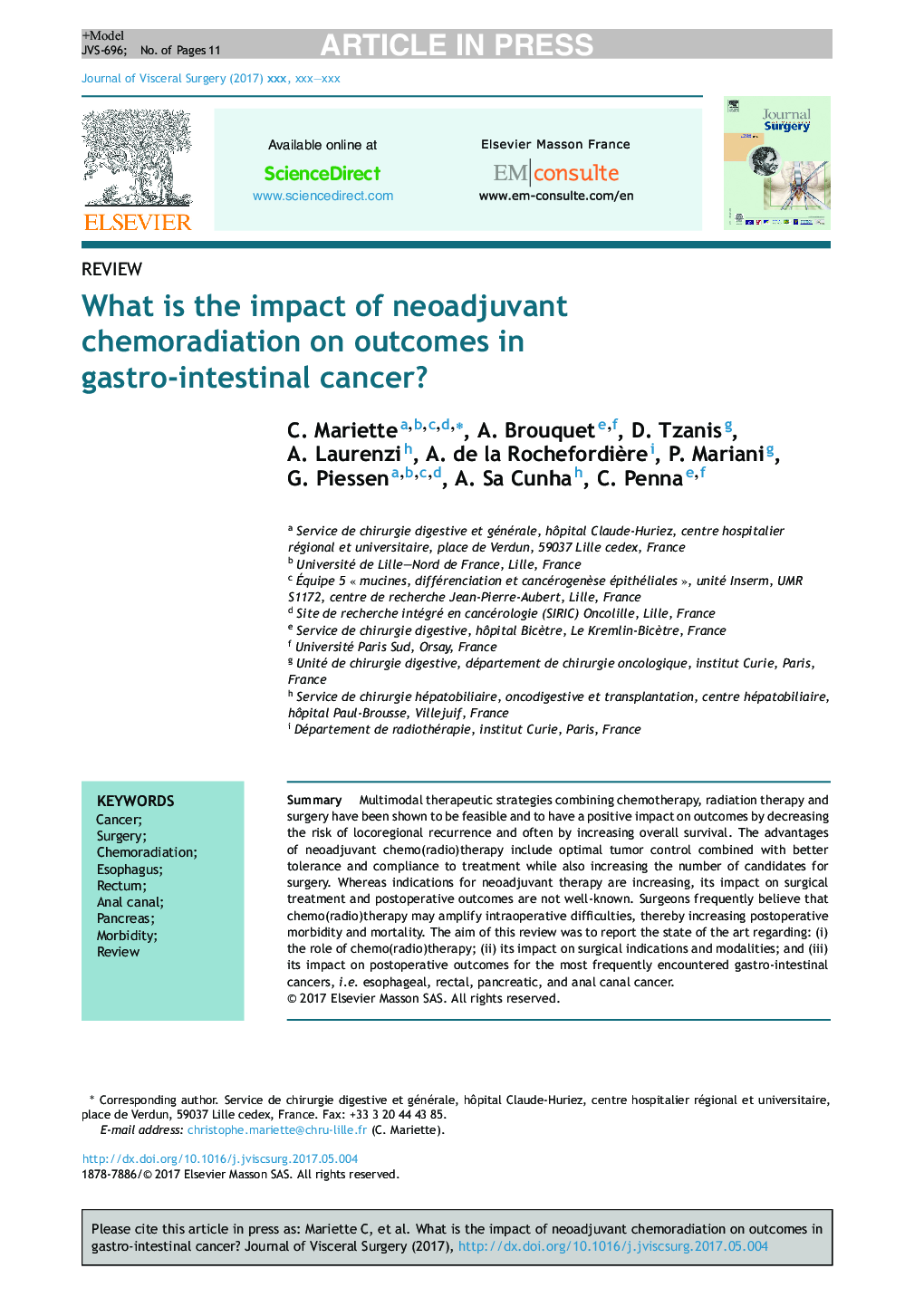| Article ID | Journal | Published Year | Pages | File Type |
|---|---|---|---|---|
| 5660972 | Journal of Visceral Surgery | 2017 | 11 Pages |
Abstract
Multimodal therapeutic strategies combining chemotherapy, radiation therapy and surgery have been shown to be feasible and to have a positive impact on outcomes by decreasing the risk of locoregional recurrence and often by increasing overall survival. The advantages of neoadjuvant chemo(radio)therapy include optimal tumor control combined with better tolerance and compliance to treatment while also increasing the number of candidates for surgery. Whereas indications for neoadjuvant therapy are increasing, its impact on surgical treatment and postoperative outcomes are not well-known. Surgeons frequently believe that chemo(radio)therapy may amplify intraoperative difficulties, thereby increasing postoperative morbidity and mortality. The aim of this review was to report the state of the art regarding: (i) the role of chemo(radio)therapy; (ii) its impact on surgical indications and modalities; and (iii) its impact on postoperative outcomes for the most frequently encountered gastro-intestinal cancers, i.e. esophageal, rectal, pancreatic, and anal canal cancer.
Related Topics
Health Sciences
Medicine and Dentistry
Gastroenterology
Authors
C. Mariette, A. Brouquet, D. Tzanis, A. Laurenzi, A. de la Rochefordière, P. Mariani, G. Piessen, A. Sa Cunha, C. Penna,
